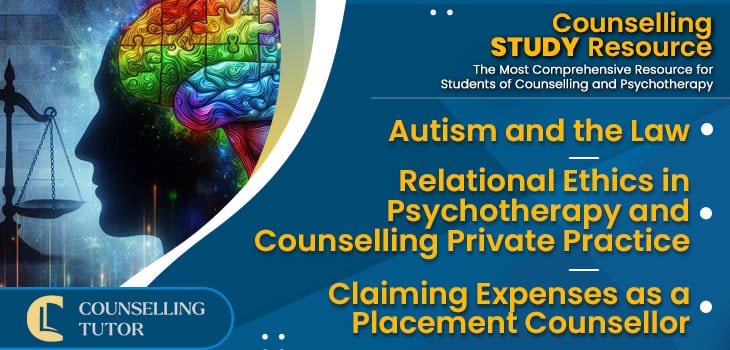See Counselling Skills Used in Real Sessions by Qualified Therapist
Real Sessions – Real Presentations – Real Skills
Gain the competence and confidence to use counselling techniques effectively!

In Episode 318 of the Counselling Tutor Podcast, your hosts Rory Lees-Oakes and Ken Kelly take us through this week’s three topics:
Autism and the Law
There are now multiple laws that protect autistic individuals, and it’s important to be aware of these in your practice so that you can best serve your clients.
The main points of this section include:

Real Sessions – Real Presentations – Real Skills
Gain the competence and confidence to use counselling techniques effectively!
In this week’s ‘Practice Matters’, Rory speaks with Caz Binstead about her book Relational Ethics in Psychotherapy and Counselling Private Practice: Solidarity, Compassion, Justice.
The key points of this discussion include:

On-demand access to a rich lecture library covering theory, skills, and professional development for counselling students—Mapped to the UK awarding body criteria
“The Student Library has been BRILLIANT, I can’t recommend it enough!
It has been a lifeline in helping me prepare for practice and my first clients. If you’re considering it, go-for-it, it’s absolutely worth it!”
Kelly – Graduated and now in practice.
When you go into placement, you are volunteering your time. In this section, Rory and Ken discuss what expenses you might be able to claim, and recognising your right to ask about it:
Autism and the Law

Get on-demand Certified CPD that is implementable in your practice
